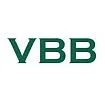- with readers working within the Banking & Credit industries
The Supreme Court's judgment of 18 October 2013 is the latest in an ongoing dispute between, on the one hand, the Belgian company Meura and its parent company Boccard and, on the other hand, the companies Berewtec and Anheuser Busch Inbev ("Inbev").
Inbev and Berewtec hold the rights to a European Patent on a "filtering device". Inbev and Meura entered into an agreement under which Meura was granted an exclusive production and operation license for the filtering device in exchange for the payment of royalties. The agreement provides that, in case Meura were to make improvements to the original patent, Meura is bound to transfer part of the rights in this improvement to Inbev. Meura made such improvements and filed for a new patent to be registered jointly by Berewtec, Inbev and Meura.
Before the Brussels Court of Appeal, Meura and Boccard had argued that the licensing agreement did not require Meura to pay royalties for the production and operation of filters under the new patent. In this respect, the Brussels Court of Appeal held that license agreements are sui generis agreements and that the parties to such agreements are free to decide on the legal regime which governs them. On the basis of the facts of the case at hand, the Court held that the scope of the licensing agreement between Inbev and Meura is not limited to the filtering device as patented, but rather covered the filtering device as such. Consequently, the Court found that Meura was also required to pay royalties for the exploitation of the new patent which it partially owns.
This judgment was further appealed to the Supreme Court. The main issue before the Supreme Court was the legitimacy, under competition law, of an exclusive licensing agreement which not only obliges the licensee to transfer part of the rights resulting from an improvement to the initial patent to the licensor but which also requires the licensee to pay royalties to the licensor for the exploitation of the jointly owned patent in the improvement.
The Supreme Court confirmed the judgment of the Brussels Court of Appeal, stating that the licensing agreement at issue was not in violation of European or Belgian competition law. Both Courts based their view on the finding that the improvement patented by Meura in its own name and in name of Berewtec and Inbev could not be exploited without the agreement of Inbev, which holds the rights to the initial patent, i.e., it is a non-severable improvement. Therefore, both patents were held to be inextricably linked.
In finding that the improvements made by Meura were not severable from the initial patent, the Brussels Court of Appeal relied on point 109 of the Guidelines on the application of Article 81 of the EC Treaty to technology transfer agreements (the "Guidelines"). Point 109 of the Guidelines clarifies Article 5(1)(b) of the former Block Exemption Regulation for Technology Transfer Agreements ("TTBER"), under which an agreement which obliged a licensee to assign rights to its own severable improvement to the licensee fell outside the scope of the safe-harbor provision of the TTBER. By contrast, the grant-back of non-severable improvements is covered by the TTBER safe harbor.
Recently, a new version of the TTBER has been adopted and the Guidelines have been updated. Under the new Guidelines and the new TTBER, the distinction between severable and non-severable improvements was removed. Accordingly, the grant-back obligation of non-severable improvements no longer benefits from an automatic exemption. However, this does not mean that such grant-back obligations are now considered to be anti-competitive. Instead, the agreement now has to be assessed on a case-by-case basis. The new TTBER entered into force on 1 May 2014 (see, VBB on Competition Law, Volume 2014, No. 3, p. 17, available at www.vbb.com).
The content of this article is intended to provide a general guide to the subject matter. Specialist advice should be sought about your specific circumstances.

